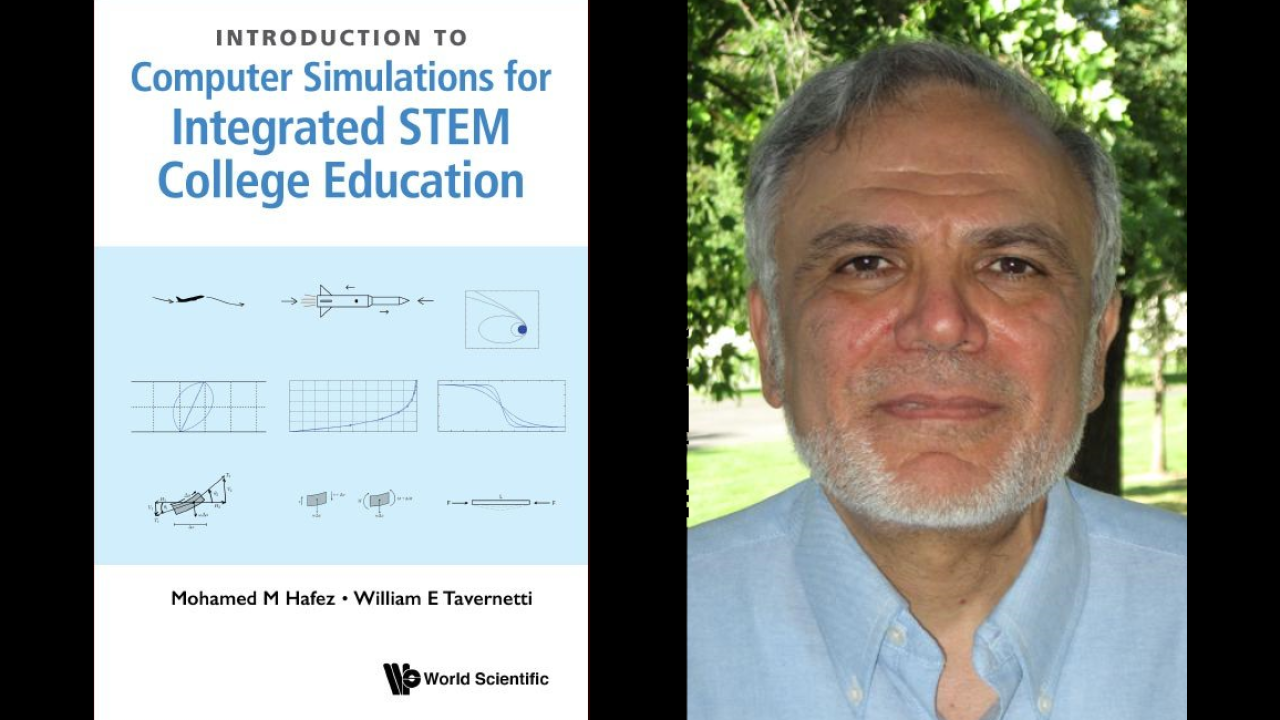
Mohamed Hafez’s new book introduces first-year students to computer simulations
Professor Mohamed Hafez’s latest book, Introduction to Computer Simulations for Integrated STEM College Education, was published by World Scientific Publishing Co. in October 2019.
The book, aimed at high school senior students and first-year undergraduate students, gives a background in basic physics and basic mathematics—including differential equations and numerical methods, among other areas—while showing the students how to use computers to solve problems in STEM fields.
“Computers have changed our society and our civilization, so it’s imperative to understand how to use them to solve technical problems,” said Hafez. “Our approach is to emphasize the power of computer simulation for use in different fields, but with the same common threads.”
Hafez and his co-author, former graduate student and current Department of Mathematics lecturer William Tavernetti, emphasize the problem-solving methods that are common to each field in an accessible way. They do this by highlighting the influential mathematicians and scientists who shaped each field to show how the fields evolved and how they’re all related.
“It’s the big picture—a panorama—so students can see the common threads,” said Hafez. “Our approach was to make the material simple without losing the rigor. That is not easy, but very rewarding.”
The book is a product of Hafez’s experience teaching the College of Engineering’s undergraduate numerical methods course (ENG 180). He found the students were struggling with the rigorous curriculum and felt they needed a stronger background in computer simulations, so he and Tavernetti started compiling notes for a book to teach them what they needed to know.
To promote publication, Hafez gave an invited talk on the book at the 7th International Conference and Exhibition on Mechanical and Aerospace Engineering in September 2019 in San Francisco.
Hafez has been a dedicated educator and a fixture in the MAE department since he joined UC Davis in 1985. He has received four different awards for his teaching, including the UC Davis Distinguished Teaching Award in 1993, the UC Davis Prize for Undergraduate Teaching and Scholarly Achievement in 1998 and the UC Davis Engineering Alumni Distinguished Teaching Award in 2000. He has also been an instructor for UC Davis’ First-Year Seminar program and COSMOS at UC Davis since each program began 20 years ago.
“I’d like to say thank you for the support I get from STEM funding, and I’d like to leave something for the students,” he said. “This is the way I think I can pay back.”
